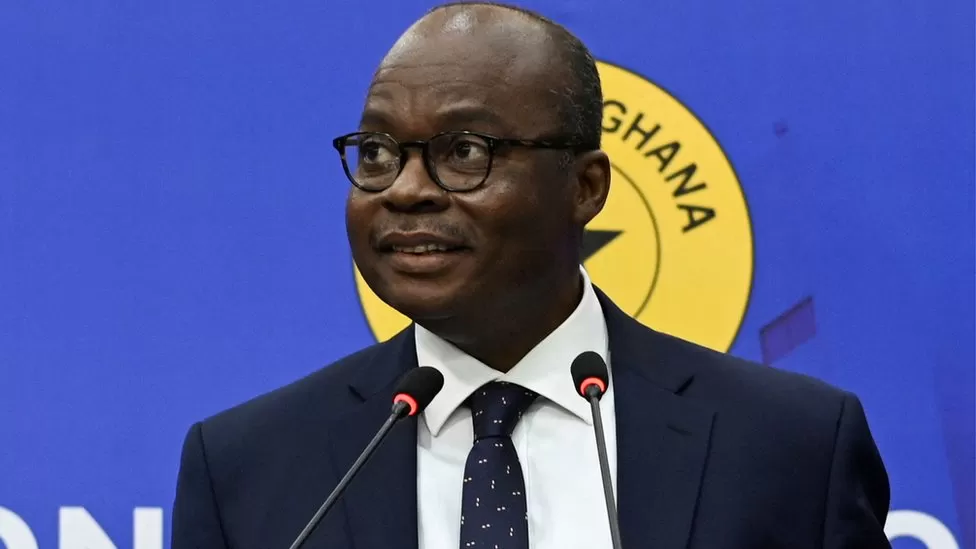GHANA – once touted as a trailblazing African economic success story – is facing an unprecedented financial crisis.
This week, hundreds of protestors took to the streets in the capital Accra, calling on the governor of the Bank of Ghana and his two deputies to resign over the loss of about 60bn Ghanaian cedis ($5.2bn; £4.3bn) in the 2022 financial year.
The demonstration, dubbed #OccupyBoG, was led by the opposition National Democratic Congress (NDC) party. The protestors, dressed in red shirts, scarfs and berets, chanted songs and held banners – some reading “stop the looting, we are suffering”.
The opposition claims the bank printed money illegally to lend to the government, leading to the depreciation of the currency and crippling inflation.
It has also criticised the bank for spending more than $762,000 on domestic and foreign travel, an 87% increase on the previous year, and $250m on a new office building. The opposition says these figures are recorded in an internal audit.
The NDC has accused the central bank governor, Dr Ernest Addison, of recklessness and mismanagement. And while the bank has been accused of mismanagement in the past, a loss of this magnitude is unprecedented.
“We have never seen anything like this in our history. If the Bank of Ghana wants to recover from this loss… it will take them more than 45 years,” says economist Professor Godfred Bokpin, from the University of Ghana.
The bank denies charges of mismanagement and says the losses were a result of a fluctuating exchange rate and because of non-payment of loans by state institutions.
It also says the government’s decision to borrow $700m from it and not pay it back in full has contributed to the crisis.
The bank’s governors have also been accused of fanning rampant inflation and economic hardship by their actions. “The time when they were printing billions for the government, didn’t they know that it will have repercussions?” asks lawyer Martin Kepbu.
Ghana is currently going through its worst economic crisis in a generation. Last year, the inflation rate hit a record high of 54% – and is still running at more than 40%. Multiple credit rating agencies have downgraded the nation, preventing it from borrowing money internationally.
By September 2022, Ghana’s total debt had surged to $55bn. This meant the government needed in excess of 70% of its income to service the debt, something it was unable to do. It subsequently defaulted on much of its debt payments.
The government was forced to approach the International Monetary Fund (IMF) for assistance. To secure a $3bn bailout earlier this year, the government had to agree to fulfil a number of requirements.
The most important of these was to reduce the nation’s debt interest payments to a manageable level by 2028. This would leave them with enough funds to run the economy.
To achieve this, Ghana’s government began debt restructuring by renegotiating terms with its creditors, proposing lower interest rates on their loans and longer repayment terms to relieve pressure on public finances.
However, some creditors refused to take part in this debt exchange programme.
On 9 August the Bank of Ghana issued a statement saying the government had told it that it didn’t have enough money to meet the IMF’s requirement and consequently would not repay half of the $700m it had borrowed from the bank.
Instead the money would go towards the debt restructuring. It also said it would not pay any interest due to the bank.







